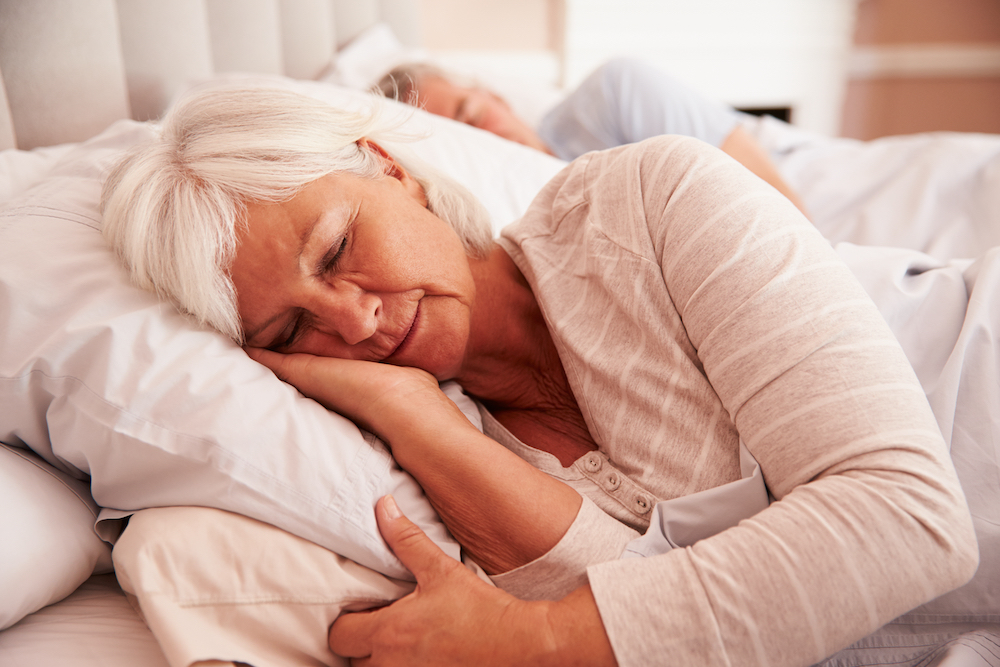How Dementia Affects Sleep
For our senior loved ones with dementia, getting a good night’s sleep is more difficult than it ever has been before. Because dementia affects your cognitive function, sleep cycles and the circadian rhythm are often disrupted as dementia affects the brain.
Of course, there are other factors in your senior that may affect their poor sleeping habits along with dementia, including:
- a lack of natural sunlight, or not enough outside time
- chronic pain
- exhaustion
- side effects of medication
- general confusion about good sleeping hours
Dementia, combined with these other factors, could make any senior confused, exhausted, and struggling with sleep. Here at our facility for memory care in Carlsbad, we do our best to mitigate these concerns; however, every patient is different, and every senior takes a little time to get to know and develop a good care plan.
Things You Can Do
If your senior is still living at home, there are several things that you can do to help them get a good night’s rest. These things include:
1.) Create a sleep schedule – and stick to it.
Seniors with dementia will often sleep for prolonged periods of time throughout the day, resulting in poor sleep at night. This could be attributed to dementia disrupting the circadian rhythm, so your senior may not even realize that they’re disrupting their sleep so badly when this occurs.
Try to get your loved one into bed at the same time every night and up at the same time each morning, with minimal naps in between. Create a calming nighttime routine for you both to do together as well. You could get some dim lights, turn on a diffuser, use lotion, listen to a sleep podcast – whatever you think would be comfortable for your senior and foster the best sleeping environment for them, you should do.
When your senior gets enough sleep, so do you. You can rest easier knowing that they are safe and warm in bed.
2.) Check medications for side effects.
Seniors with dementia will, more likely than not, take several different medications throughout the day. Double check the side effects for the medications that they are taking to see if those may be the cause of – or attributing to – the lack of sleep your loved one is getting.
Some medications may be stimulants, and if you give those to your senior at night, that can keep them awake. Some others might have other side effects that may affect sleep as well, like those that make you have to constantly get up to use the restroom at night. Adjusting the times that you give these medicines to your senior has the potential to improve their sleep as well.
If these steps still aren’t working, it’s worth speaking to your loved one’s doctor about it. Maybe there is another medicine that has different side effects but will perform the same purpose, allowing for better sleep at night. You could also talk to your doctor about potentially using melatonin, which is a naturally occurring hormone in the body. If your loved one’s doctor believes that might help, it may be worth a try.
3.) Foster the ideal environment for sleep.
There are not many people that can sleep if the environment isn’t right, and that includes your senior. If your senior’s room is too loud, too bright, too hot, too anything, it might affect how much rest that they’re getting.
The ideal temperature to have the room is between approximately 60-67 degrees Fahrenheit, with no loud noises and no bright lights. You might want to add in some soothing music, or even reading with them can help. A calm, cool, and quiet senior bedroom leads to a good night’s sleep.

4.) Cut out the coffee.
This one may seem a little like a no-brainer, but it still bears mentioning: if your senior loves to drink coffee or tea, this may be what’s keeping them up at night. Try switching out their coffee or tea for the decaffeinated version, so you don’t have to get rid of it completely. Or you can always try a herbal tea geared toward winding down and relaxing, such as chamomile tea. The lowered caffeine levels may help with the restlessness at night.
5.) Talk to your loved one’s doctor.
If none of these tips are working, then there may be something else at play that you might not realize. Your senior may have a condition like restless legs syndrome, sleep apnea, or something else that might be interfering with their sleep.
Talk to their doctor about their sleeping habits and what you’ve observed, and don’t forget to mention the steps that you’ve taken to help yourself. If there is something else going on in the background here, then the doctor may be able to prescribe some kind of medication or equipment (in the case of sleep apnea) to help them get the rest that they need.
When You Might Need Help
It’s easy to get overwhelmed when you’re a caretaker. However, you must prioritize your own mental and physical health, because you can’t pour from an empty cup or give of yourself when you have nothing left. It’s okay to ask for help. And while it might not be your first choice, you shouldn’t be ashamed to reach out to a senior care facility if you can’t handle it alone.
Our services for memory care in Carlsbad can help take away some of that stress. Because there are staff members working 24 hours a day, seven days a week, you can rest assured that your senior loved one is being treated to top quality care. Our facility for memory care in Carlsbad will also have some of the other tools necessary, like alarms and guard rails for the beds, to keep your loved one as safe as possible.
Even more, our staff members are trained specifically to help seniors with cognitive disabilities, so we know exactly what your senior needs to not only get a good night’s rest, but have a good day’s activity as well.
If you want to come and see the facility for yourself, please contact us and schedule a tour today!



